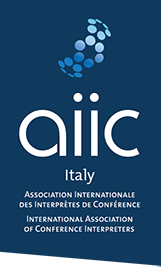
Initial training
A solid foundation in the basics can set you up for interpreting success
Find out if you have what it takes to become a conference interpreter, where to look and what to look for in an interpreting course, and find resources to help you achieve your goals.
─── Aptitude
Are you an articulate graduate with an excellent knowledge of one or more foreign languages, good general knowledge and a liking for work under pressure? Could you make it as an interpreter?
── Interested in becoming a conference interpreter?
── What it takes to be a conference interpreter: AIIC Conversations 2
── What is the difference between conference interpreting and other types of interpreting?
Choosing the right university is crucial. There are a number of objective criteria set out in AIIC's Best Practice for interpreting schools that you should make sure are met by your programme of choice. However, subjective criteria also play a role.
Many interpreters choose to study in a country where their B languages are spoken. Others might want to study in the city in which they later plan to work.
── Search by language and location for the right interpreting course
── AIIC best practice for conference interpreting training programmes
── AIIC guidelines for student internships
── Are you interested in becoming a conference interpreter?
AIIC does not offer initial training. According to AIIC's own best practice for conference interpreting training programmes , training should last 2 years and be at postgraduate level. Professional associations cannot offer this level of training.
Here are some suggestions to help you prepare for conference interpreter training:
── Live for at least 9-18 months in countries where each of your languages is spoken.
── Read the best-known literature, and descriptions of it in those languages.
── Develop a broad general knowledge and keep up-to-date on international affairs.
── Read, listen to and watch a wide variety of material in all your languages. Similarly, try to speak with people from different walks of life.
── Summarise articles you've just read or news items you've just heard: analysis is a crucial part of conference interpreting.
── Do not try to teach yourself how to interpret. It is not necessary and could even be counterproductive.
─── Resources
RESOURCES
── EU Commission Knowledge Centre on Interpretation
── A Word in your Ear (short films about interpreting)
── SCICtrain – Training modules for interpreting students
── ORCIT – resources for student interpreters
Photo: Green Chameleon/Unsplash
